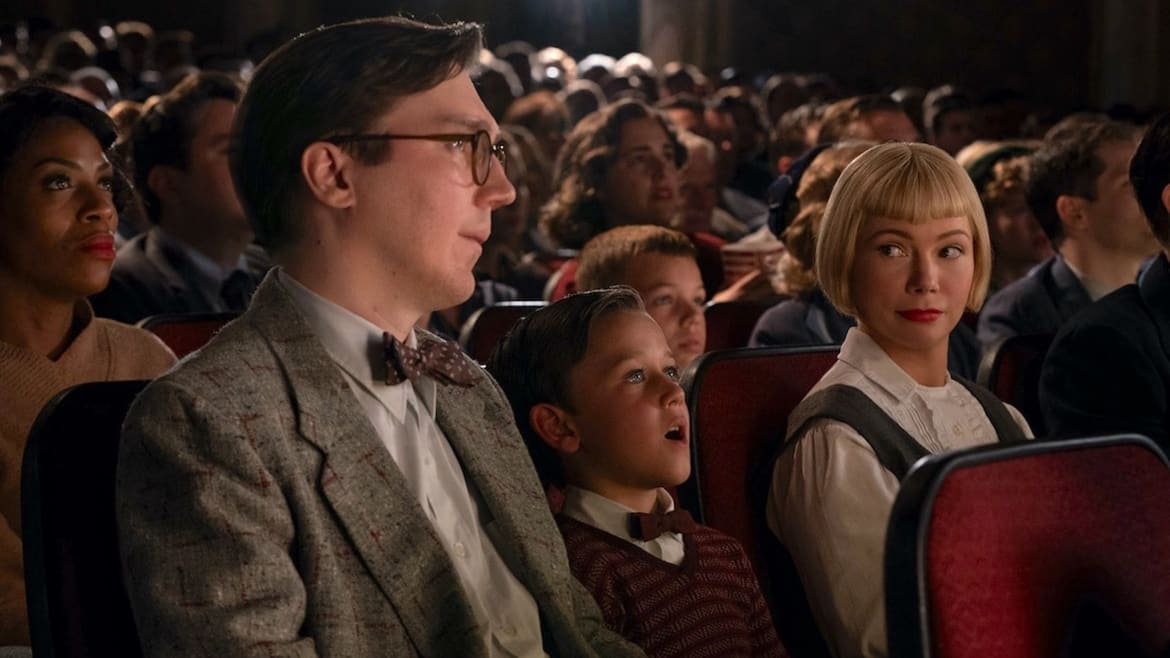Amblin
An overtly autobiographical Steven Spielberg film would seem, on the face of it, unnecessary, given that the illustrious director’s canon is full of features—led most pointedly by Close Encounters of the Third Kind and E.T. the Extra-Terrestrial—steeped in highly personal childhood and familial issues. That notion is confirmed by The Fabelmans, a two-and-a-half-hour therapy session in which the auteur imagines his own origin story in frustratingly literal fashion. Earnest to a tee—and, frequently, to a fault—it’s a drama about the magic of the movies that itself is far too often lacking in that department.
Co-written with his Munich, Lincoln and West Side Story collaborator Tony Kushner, The Fabelmans—premiering at the Toronto International Film Festival ahead of its November 11 theatrical debut—is a story about Spielberg proxy Sammy Fabelman, who as a 1950s New Jersey kid (Mateo Zoryon Francis-DeFord) is transformed by his first trip to the theater to see The Greatest Show on Earth, whose train-wreck centerpiece is the spark that ignites Sammy’s imagination. “Movies are dreams,” declares his mother Mitzi (Michelle Williams), a once-promising piano prodigy who’s now traded in her own aspirations for dutiful domesticity, and Sammy is enraptured by those 24-frames-a-second reveries of light, shadow and sound, such that he’s soon recreating the train crash with his own Hanukkah-present toys—the first of many instances in which art and life reflect each other in mesmerizing and destructive ways.
While Sammy is a budding creative type like his mom, he also has the logistical problem-solving know-how of his dad Burt (Paul Dano), a computer scientist who’s going places, and bringing along his best friend and colleague Bennie (Seth Rogen). Given her excessively boisterous laughter at his mediocre jokes, it’s patently clear that something is going on between Mitzi and Bennie. Nonetheless, that thread is for a time left in the background so Spielberg can focus on Sammy’s initial enchantment with moviemaking, which Mitzi helpfully explains to her husband is the boy’s attempt at exerting control over the chaotic world. Mitzi does this as well, albeit not through art but, instead, a mantra—“Everything happens for a reason”—which provides her with comfort in the face of escalating turmoil of her own design.

